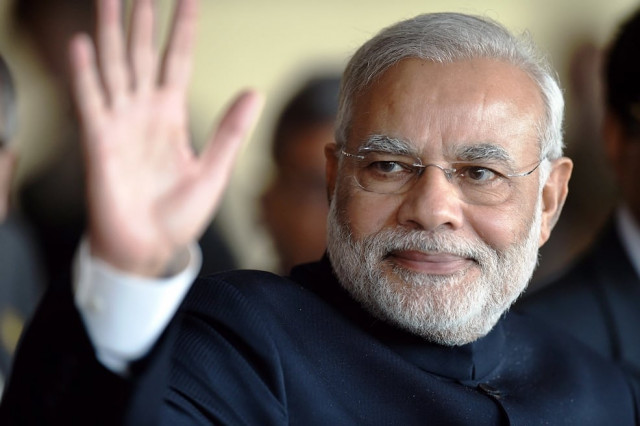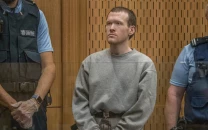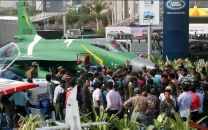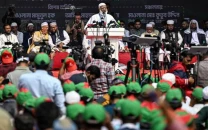India's Modi leaves for Japan to boost defence, energy ties
The two leaders, both right-wing nationalists elected on a pledge to revive their countries' economies

The two leaders, both right-wing nationalists elected on a pledge to revive their countries' economies, also share an interest in shoring up regional alliances to counter an increasingly assertive China.
Before leaving India, the 63-year-old premier said he was confident that his five-day visit would "write a new chapter" in bilateral relations with Japan in areas including defence, nuclear energy and infrastructure.
"We will explore how Japan can associate itself productively with my vision of inclusive development in India, including the transformation of India's manufacturing, infrastructure, energy and social sectors," he said in a statement.
It is Modi's first bilateral visit outside South Asia since taking office, which he says signals "the high priority that Japan receives in our foreign and economic policies."
Modi and Abe will meet privately in the historic city of Kyoto on Saturday before holding official talks in Tokyo.
Modi was initially scheduled to travel to Tokyo in early July, but altered his plans to be in India for his new government's first budget session since its landslide election victory in May.
Both men are seen as strong leaders who have championed deregulation to kickstart their countries' flagging economies.
Modi added that he would try to cultivate deeper defence ties with Abe at a time when both nations are embroiled in territorial disputes with China.
On Monday, he will meet Japan's Defence Minister Itsunori Onodera as the two countries seek to counter China's increasing regional assertiveness.
A Japanese official who asked not to be named said India had expressed interest in buying amphibious search-and-rescue planes for its defence forces.
Japan lifted its self-imposed ban on military exports earlier this year, clearing the way for such a deal.
The Indian foreign ministry said Modi's focus would also be on boosting Indian exports -- he is reportedly travelling with a large business delegation -- and seek Japanese support in infrastructural developments.
This could include Japanese investment in new high-speed train networks after the new government said the country's dilapidated railways needed an "immediate course correction".
India's new government has changed limits on foreign direct investment in defence and did away with them altogether for the railway industry.
Japan is famous for its "Shinkansen" bullet train system, but rival China has had more success exporting its technology at lower prices.
Japan is India's fourth-largest investor, with Japanese firms involved in infrastructure projects including the Delhi Metro, while Japanese automakers have long been churning out cars in India.
The two leaders are also expected to restart negotiations on nuclear energy, which have been suspended since Japan's Fukushima nuclear disaster in 2011, to help India's crippling power shortages.
Trade between India and Japan has steadily increased over the last decade, and the two countries signed a free trade pact in 2011.



















COMMENTS
Comments are moderated and generally will be posted if they are on-topic and not abusive.
For more information, please see our Comments FAQ